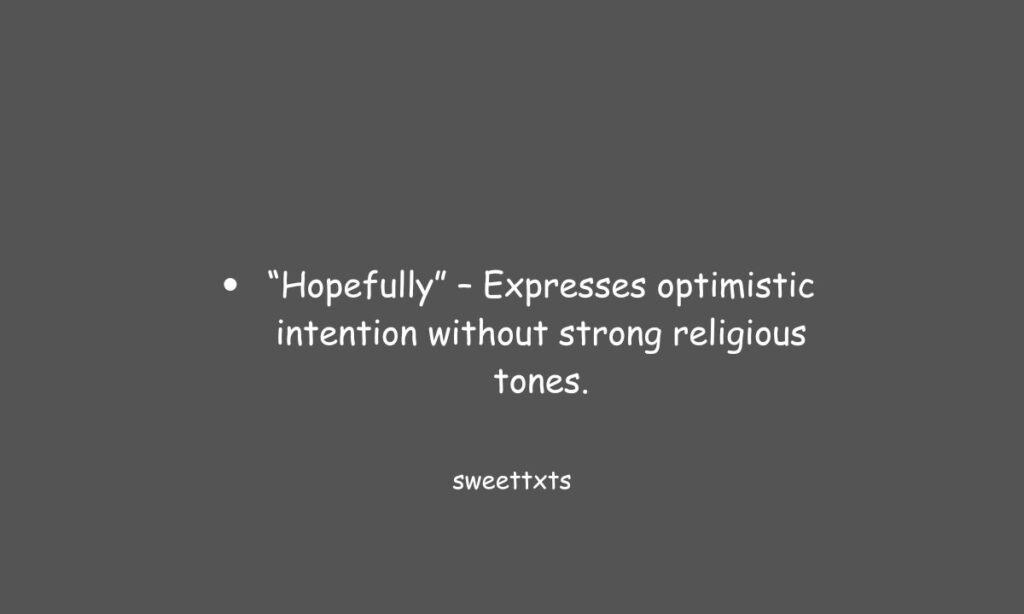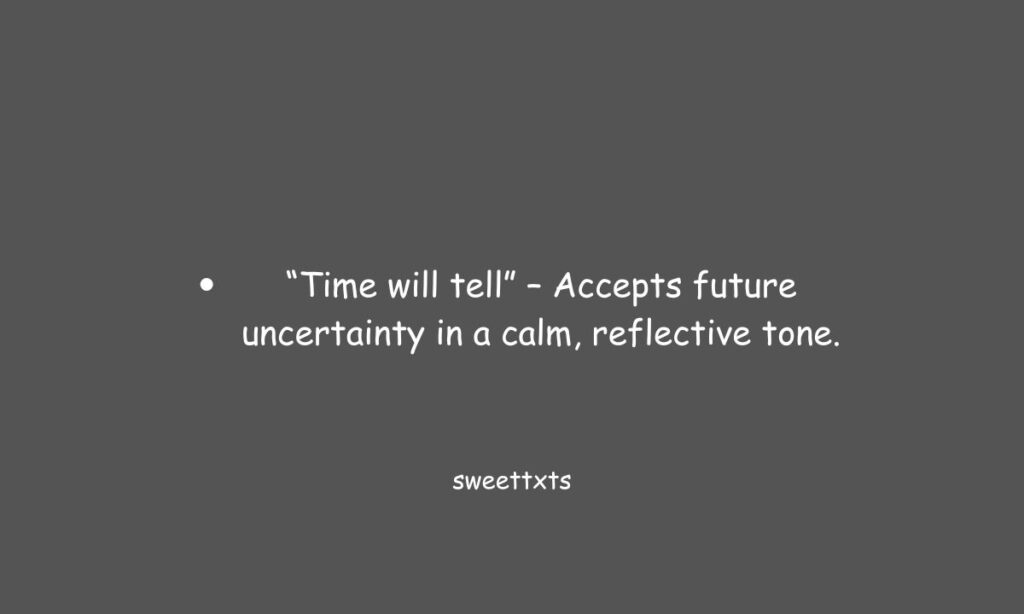The phrase “Inshallah” holds deep cultural and linguistic value across many communities. Though its roots are Arabic, it has spread across various languages and contexts, especially in informal and formal conversation. Understanding its meaning and appropriate use is essential in respectful communication.
People often encounter “Inshallah” in daily speech, online text, or cross-cultural dialogue. Its use can vary depending on tone, relationship, or context. Recognizing this flexibility allows speakers and writers to use the term sincerely and appropriately.
This article explores the hiatus meaning of “Inshallah,” how it functions in text, and what it truly stands for. We also offer professional, polite, and casual alternatives that can enhance communication while preserving respect and intention.
Inshallah Meaning (Hiatus Meaning of Inshallah Meaning)
“Inshallah” is an Arabic phrase that translates to “if God wills” or “God willing.” It is formed from three words: in (if), sha’ (wills), and Allah (God). It expresses hope or intention dependent on divine will.
The phrase signifies that a person’s plans or desires are ultimately in God’s hands. It’s a humble acknowledgment that humans don’t have full control over the future. This belief is central in Islamic teachings but also resonates in broader cultural use.
In modern usage, “Inshallah” appears in religious and secular contexts. It might be said in response to future plans, such as, “I’ll see you tomorrow, Inshallah,” meaning the speaker hopes or plans to see you—if nothing prevents it.
Inshallah Meaning in Text
When used in text messages, online chats, or social media, “Inshallah” carries multiple tones depending on context. It can sound hopeful, respectful, dismissive, or even sarcastic, which makes it a phrase with rich nuance.
For instance, a sincere “Inshallah” sent in response to plans indicates genuine hope. But when said with hesitation, it might imply uncertainty or reluctance. Understanding tone, culture, and relationship helps decode its true intent in writing.
Additionally, younger generations have begun using it casually in memes and humorous content, shifting its traditional tone to something playful or ironic. Thus, “Inshallah” in text isn’t just a phrase—it reflects personal belief, social tone, and cultural evolution.
What Does Inshallah Stand For?

Literally, “Inshallah” means “if God wills it.” However, its use goes beyond literal translation. It signifies hope, respect for fate, and sometimes politeness when not committing firmly to a plan. It serves multiple communication purposes.
In religious contexts, it reflects spiritual submission to divine control. In secular settings, it acts as a placeholder for uncertainty—acknowledging future unpredictability without outright refusal or promise.
Its meaning can also vary by region. In some cultures, it is deeply reverent. In others, it’s used casually or even jokingly. The flexibility of its application makes it an interesting and sometimes confusing expression to interpret.
The Hiatus Meaning of “Inshallah”
The word “hiatus” typically refers to a pause or break. When applied to the meaning of “Inshallah,” the “hiatus” aspect refers to the momentary pause between desire and fulfillment. The phrase marks a gap between intention and actual outcome.
In other words, saying “Inshallah” creates a space—a hiatus—between now and the possible future. It delays absolute commitment, inserting a respectful acknowledgment that something may or may not happen.
This pause, or hiatus, is not passive. It’s an active, deliberate space where hope lives. It leaves room for destiny, unseen circumstances, and divine will to play their part before action is complete.
Polite Alternatives to Inshallah
While “Inshallah” carries beauty and respect, alternatives may be more appropriate in some professional or secular settings. Below are polite phrases with similar intent:
- “Hopefully” – Expresses optimistic intention without strong religious tones.
- “With any luck” – Slightly casual, but shows dependence on circumstances.
- “God willing” – A direct English equivalent used in Christian or interfaith contexts.
- “Time will tell” – Accepts future uncertainty in a calm, reflective tone.
- “As long as everything goes well” – Optimistic and reassuring.
- “If all goes according to plan” – Professional, commonly used in business settings.
- “I aim to” – Indicates intent, while allowing for change.
- “If circumstances permit” – Formal and respectful.
- “Pending approval” – Often used in official or workplace contexts.
- “Conditions allowing” – Clear, polite way to express hopeful plans.
- “If it’s meant to be” – Romantic or poetic alternative, often used in informal talks.
- “Should nothing interfere” – Slightly formal, conveys seriousness.
- “Fingers crossed” – Casual, optimistic, and friendly.
- “All being well” – British English phrase, polite and hopeful.
- “Unless something comes up” – A realistic phrase that leaves room for change.
Choosing the Right Alternative

1. Formal Contexts
In professional environments, avoid using religious phrases unless culturally appropriate. Alternatives like “If circumstances permit” or “Pending approval” are neutral and respectful.
2. Casual Conversations
When chatting with friends or texting, informal options like “Hopefully” or “Fingers crossed” feel more natural. These soften the tone while still conveying the same pause or hope.
3. Polite Deferral
If you want to avoid a hard “yes” or “no,” phrases such as “If all goes according to plan” or “Conditions allowing” can be used to keep conversations open without over-promising.
4. Spiritual Expression
In multicultural settings, you may choose “God willing” when you want to stay within a religious framework but communicate clearly in English. It retains reverence without assuming shared cultural background.
Cultural Significance of “Inshallah”
The phrase is deeply woven into daily language across Muslim-majority countries and communities. It’s often said out of habit, but its original meaning remains grounded in faith and humility.
In cultures where fate and divine control are key beliefs, “Inshallah” isn’t just a phrase—it’s a worldview. It reflects the understanding that while humans plan, outcomes are beyond human control.
This cultural backdrop makes it important to use the phrase (or its alternatives) with awareness and respect. Misusing it can lead to misunderstanding, especially across linguistic or religious boundaries.
Inshallah and Ambiguity in Communication
One of the more controversial aspects of “Inshallah” is its association with vague commitment. In some cases, it’s used as a polite way of not confirming without rejecting.
For example, if someone says, “Will you attend the meeting?” and the reply is “Inshallah,” it might mean yes, no, or maybe—depending on tone, context, and speaker.
This ambiguity can frustrate listeners unfamiliar with the cultural intent. Hence, choosing a clearer alternative may be helpful in cross-cultural or high-stakes settings.
Example Sentences Using Alternatives

- I’ll submit the report by Monday, if all goes according to plan.
- We’ll visit the new site next week, God willing.
- The launch should happen this quarter, conditions allowing.
- I’ll be at the dinner, unless something comes up.
- I’ll try to help with the project, pending approval.
- We might go hiking on Sunday, fingers crossed.
- Hopefully, the rain won’t ruin the event.
- I’ll respond by end of day, if circumstances permit.
- Let’s reconnect next month, with any luck.
- He’s planning to enroll next semester, time will tell.
- I’m aiming to finish early, should nothing interfere.
- She’ll take the offer, if it’s meant to be.
- The meeting will happen tomorrow, all being well.
- I’ll bring the documents on Friday, I aim to.
- I’ll join you at the conference, as long as everything goes well.
Final Thoughts
The phrase “Inshallah” blends faith, humility, and human hope. While it carries profound meaning in spiritual and cultural terms, its nuanced use in communication makes it both beautiful and complex.
Understanding the alternatives allows us to communicate with clarity, respect, and adaptability. Whether in personal, professional, or digital conversations, choosing the right phrase ensures we honor both meaning and context.
Being mindful of tone, audience, and cultural background helps avoid miscommunication and promotes more meaningful connections.

Daily blessings and uplifting messages by Drupmo for every morning, evening, and day of the week—bringing peace, hope, and inspiration to your soul.